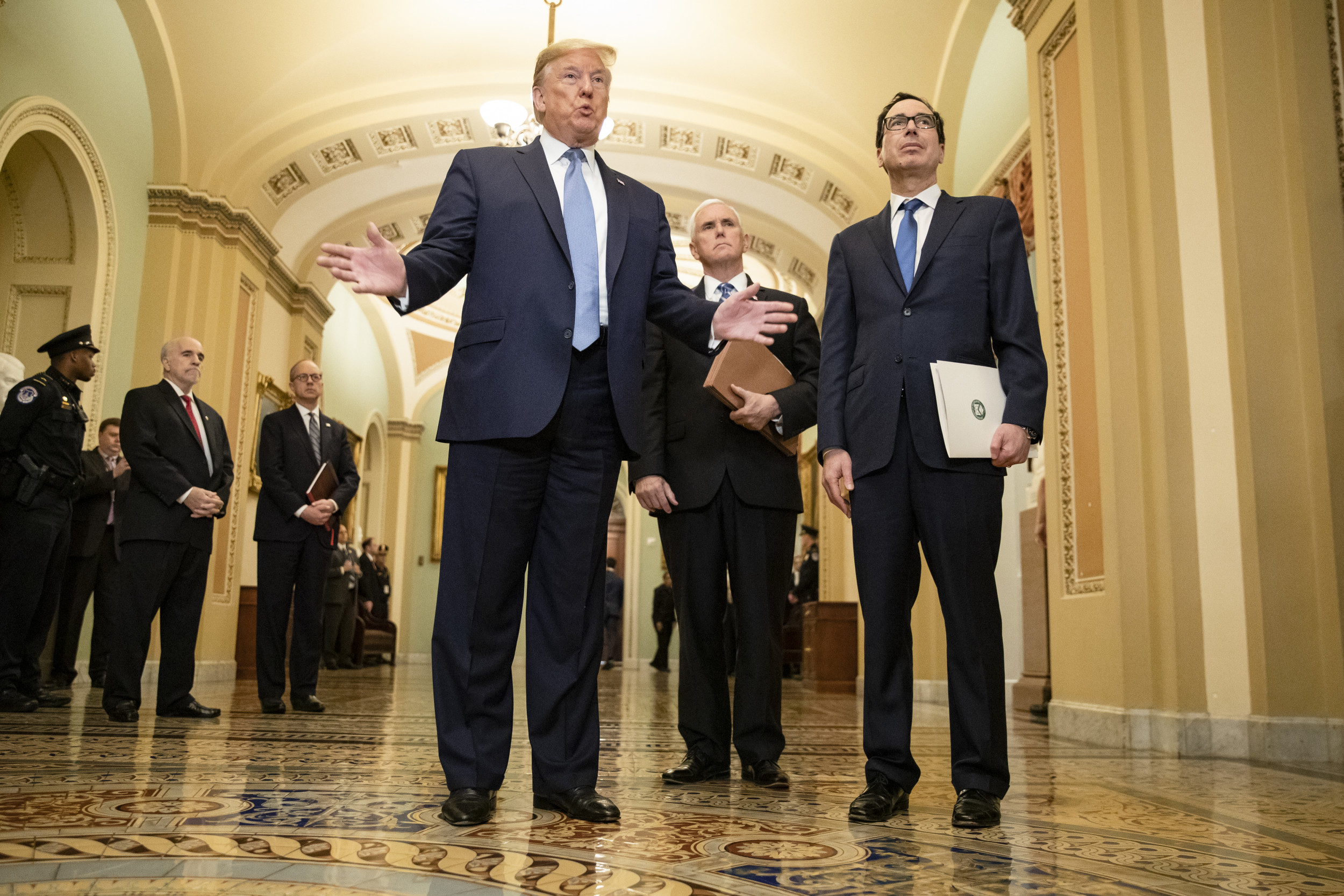

"Everything in this package is designed to relieve the suffering and to meet the most urgent needs of the nation and put us in a better position to prevail - starting with beating this virus and vaccinating the country," he said. The Senate parliamentarian ruled in late February that increasing the hourly threshold to $15 does not meet a strict set of guidelines needed to move forward in the reconciliation process, which would allow Senate Democrats to pass the relief bill with a simple majority and no Republican votes. Who is out of luck? Workers being paid at or just above the federal minimum wage of $7.25 an hour will not see a boost in pay.

Severely impacted small businesses with fewer than 10 workers will be given priority for some of the money. If you own a small business: The bills would provide $15 billion to the Emergency Injury Disaster Loan program, which provides long-term, low-interest loans from the Small Business Administration.Qualifying families could receive a child tax credit of $3,600 for each child under 6 and $3,000 for each one under age 18, up from the current credit of up to $2,000 per child under age 17. If you have children: Most families with minor children could claim a larger child tax credit for 2021, under a provision contained in both the Senate and House bills.If you're behind on your rent or mortgage: Both bills would send roughly $20 billion to state and local governments to help low-income households cover back rent, rent assistance and utility bills.And families whose children's schools are closed may be able to receive Pandemic-EBT benefits through the summer if their state opts to continue it. If you are hungry: Under both the Senate and House bills, food stamp recipients would see a 15% increase in benefits continue through September, instead of having it expire at the end of June.The House bill does not contain the tax provision.

This is a significant difference from the House bill, which would provide a $400 weekly enhancement through August 29 and continue the two pandemic programs for the same period.The deal also calls for extending two key pandemic jobless benefits programs for the same period and making the first $10,200 of unemployment payments tax-free. If you are unemployed: The jobless would receive a $300 weekly federal boost to unemployment benefits and would get those payments through September, under a last-minute change in the Senate.That means that not everyone who was eligible for a check earlier will receive one now - but for those who do qualify, the new payments will top up the $600 checks approved in December, bringing recipients to a total of $2,000 apiece. The payments will phase out faster than they would have under the House version of the bill, which set the income caps at $200,000 for couples and $100,000 for individuals. If your family makes less than $160,000 a year: The Senate bill would provide direct payments worth up to $1,400 per person to families earning less than $160,000 a year and individuals earning less than $80,000 a year.


 0 kommentar(er)
0 kommentar(er)
